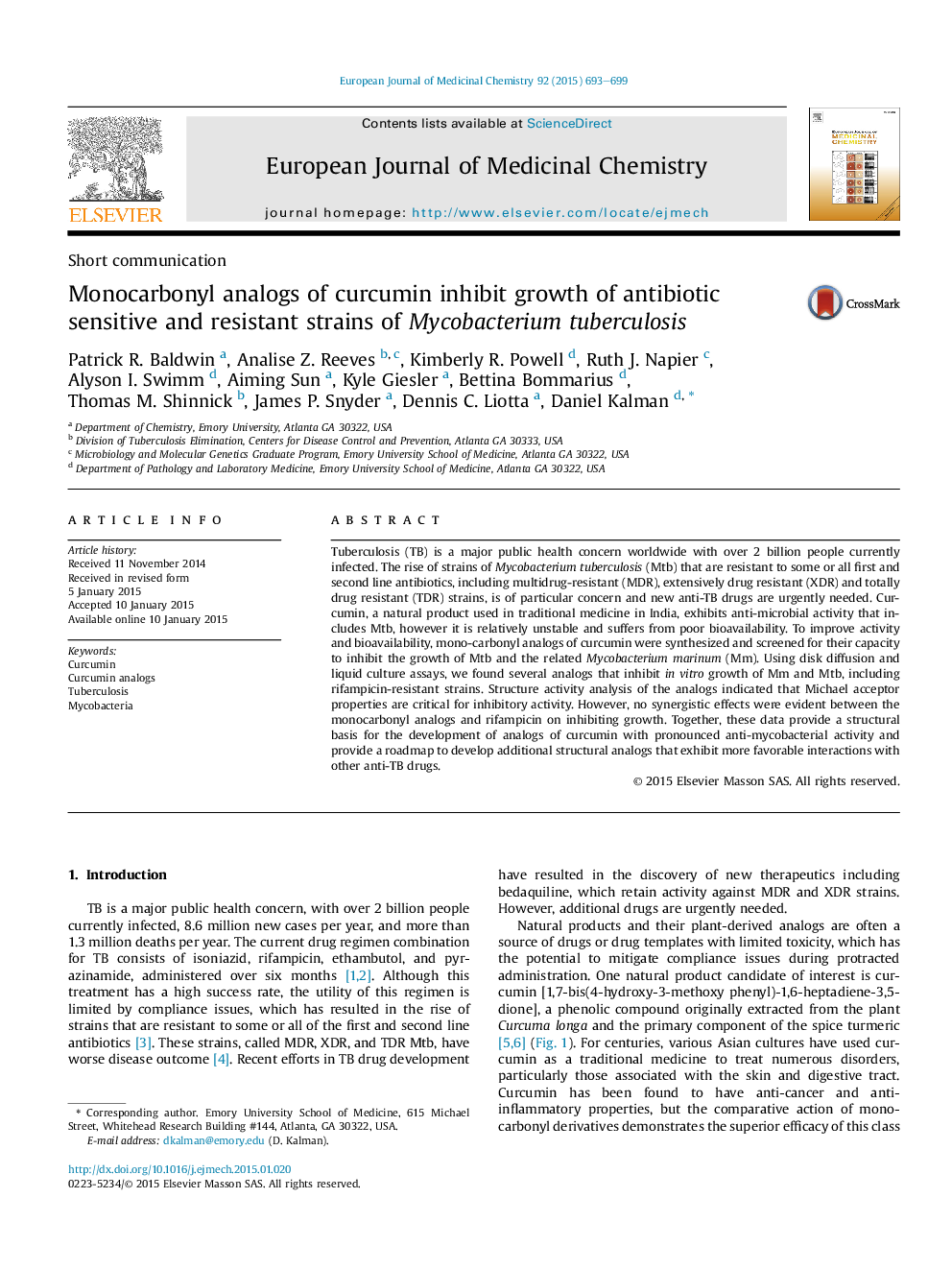| Article ID | Journal | Published Year | Pages | File Type |
|---|---|---|---|---|
| 1394043 | European Journal of Medicinal Chemistry | 2015 | 7 Pages |
•Monocarbonyl curcumin analogs inhibit growth of Mycobacterium marinum.•Analogs' Michael acceptors are critical for inhibitory effects.•The lead compound UBS-109 inhibits Mycobacterium tuberculosis.•UBS-109 blocks growth of drug resistant strains of Mycobacteria.
Tuberculosis (TB) is a major public health concern worldwide with over 2 billion people currently infected. The rise of strains of Mycobacterium tuberculosis (Mtb) that are resistant to some or all first and second line antibiotics, including multidrug-resistant (MDR), extensively drug resistant (XDR) and totally drug resistant (TDR) strains, is of particular concern and new anti-TB drugs are urgently needed. Curcumin, a natural product used in traditional medicine in India, exhibits anti-microbial activity that includes Mtb, however it is relatively unstable and suffers from poor bioavailability. To improve activity and bioavailability, mono-carbonyl analogs of curcumin were synthesized and screened for their capacity to inhibit the growth of Mtb and the related Mycobacterium marinum (Mm). Using disk diffusion and liquid culture assays, we found several analogs that inhibit in vitro growth of Mm and Mtb, including rifampicin-resistant strains. Structure activity analysis of the analogs indicated that Michael acceptor properties are critical for inhibitory activity. However, no synergistic effects were evident between the monocarbonyl analogs and rifampicin on inhibiting growth. Together, these data provide a structural basis for the development of analogs of curcumin with pronounced anti-mycobacterial activity and provide a roadmap to develop additional structural analogs that exhibit more favorable interactions with other anti-TB drugs.
Graphical abstractFigure optionsDownload full-size imageDownload as PowerPoint slide
